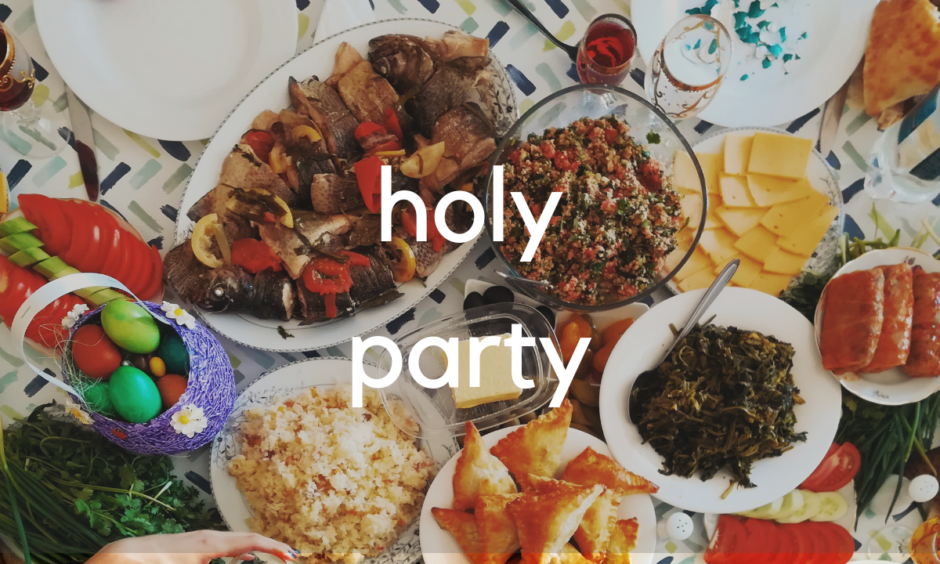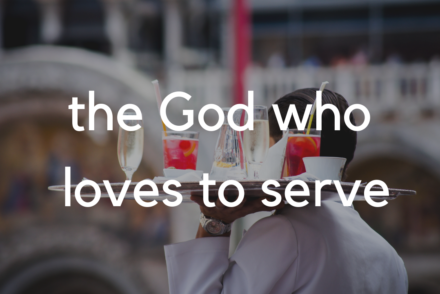I’m reading through the Bible along with several others from Threshingfloor this year, this past week we read Nehemiah 7-9. Nehemiah has facilitated the rebuilding of the walls of Jerusalem and people are returning to live in the city. They gather the people to hear the reading of God’s law, which has been largely abandoned and unknown for generations, so Ezra and other priests read and explain “so that the people understood the reading.” (v.8) As the Israelites hear God’s law read and realize just how far their lives are from what God has commanded of them, they respond with sorrow and weeping. We read,
“And Nehemiah, who was the governor, and Ezra the priest and scribe, and the Levites who taught the people said to all the people, “This day is holy to the Lord your God; do not mourn or weep.” For all the people wept as they heard the words of the Law. Then he said to them, “Go your way. Eat the fat and drink sweet wine and send portions to anyone who has nothing ready, for this day is holy to our Lord. And do not be grieved, for the joy of the Lord is your strength.” So the Levites calmed all the people, saying, “Be quiet, for this day is holy; do not be grieved.” And all the people went their way to eat and drink and to send portions and to make great rejoicing, because they had understood the words that were declared to them.”
Nehemiah 8:9-12
This Day is Holy
Based on the majority of sermons I’ve heard and the general picture of how we should respond to God’s truth when we’re convicted, it would seem like weeping and repentance would be exactly the response that would please God, yet Ezra and the priests tell the people, “This day is holy to the Lord your God; do not mourn or weep.
When you picture a holy day, what do you imagine? My default image looks like getting up early to pray, read the Bible, having an appropriately non-glutinous breakast, going to church to worship and hear a sermon, then probably coming back home to do some more prayer and Bible reading. Maybe throw in some fasting over dinner time for good measure.
That, however, is in many ways the opposite of what Ezra commands the Israelites to do, and the fact that it’s my (and I believe many Christian’s) view of what a holy day needs to be reveals our incredibly limited view of holiness.
Eat, drink, and rejoice
What Ezra and the priests command the people to do to mark the holy day sounds a lot more like a gluttonous and rowdy feast than a somber day at church: “Go your way. Eat the fat and drink sweet wine and send portions to anyone who has nothing ready, for this day is holy to our Lord. And do not be grieved, for the joy of the Lord is your strength.”
Note this well. One manifestation of a right and holy response to God’s truth being proclaimed is to have a feast, eat rich food, drink wine, rejoice, and be generous.
We need to stop assuming that God’s most desired response is us feeling sorry for how we’ve fallen short. God is a God of joy, and as the Levites tell people in these verses, “do not be grieved, for the joy of the Lord is your strength.”
Too often we look to the wrath and judgment of the Lord for strength to motivate us towards holy living, when instead we should be drawing on the joy and love of the Lord to strengthen us. We are told numerous times throughout the scriptures to fear the Lord, but as Proverbs says “the fear of the Lord is the beginning of wisdom.” The beginning. Fear of God, generally motivated by his awesome power and righteous wrath, is a crucial starting place, but it’s not the end goal. It’s the love and joy of the Lord that are the fullness of wisdom and which can sustain a lifetime of joyful obedience.
And what better way to learn the joy and love of the Lord than to celebrate in response to his revealed truth?
The power of a holy party
Do you know how to have a holy party? If not, it may be time to practice. Don’t underestimate the power of a good feast (including some “sweet wine”!) to remind your body, heart, and soul that God’s truth is a delicious and satisfying thing. There’s a legend that jewish rabbi’s would coat new student’s writing slates, on which they would be copying out the torah, with honey and have them lick it off to remind them that God’s truth is sweet to our souls.
Holy parties not only remind us of the goodness of God and the importance of resting in the joy of the Lord – they are also powerful evangelistic opportunities. What better way to communicate how amazing and good God is than to have a party and invite a few neighbors over to celebrate it?
So what exactly does a Holy party look like? You can scan the Gospels and look at some of the scenes where Jesus is found at parties to get some additional insight, but this passage contains a few foundational things:
The five Gs of a holy party:
- God’s word proclaimed: Ezra and the priests read a large portion of the torah to the Jews in the above passage. Likewise, reading and/or proclaiming God’s truth is a central piece of any Holy party.
- Good food: “Eat the fat” the priests admonish the Israelites, which in modern language probably means something like, “go grill some quality steaks.” Good food shared at the table that God has given you is another key. As I’ve written about elsewhere (as have others) shared meals are a powerful evangelism and community building tool.
- Good drink: “Drink sweet wine.” Holy parties can include alchohol (sorry Baptists), however the key point here isn’t the alchohol content but the idea that the drink is also something satisfying and enriching. In winter that might mean some real hot chocolate (none of that powdered mix stuff), in Spring or summer it might mean an ice cold punch with fresh fruit on a hot day.
- Generosity to the poor: Any party that doesn’t include generosity to those in need isn’t a holy party. That generosity might look like inviting someone who couldn’t afford a party of their own or it might be inviting those who come to bring something to donate to the local food shelf or anything along those lines. However it manifests, a holy party includes generosity to those in need.
- Great rejoicing: Joy in the Lord is the hallmark of a holy party. That doesn’t meant that you need to sing a dozen worship songs, but it probably does mean you need to have some explicit sort of thanksgiving and fun. Throw on some dance music, throw up a prayer of thanksgiving, and dance the evening away in God’s presence. However you do it, there needs to be joy.
If, like me, you’re in the northlands where summer is starting to make it’s all-too-brief presence known, the next few months are a prime time to put this to practice. Try out the idea of a holy party. Get a dozen friends together (or four if you’re an introvert), plan out how you’ll incorporate each of the 5 G’s, and let the festivities begin. Let the joy of the Lord be your strength. Trust me. It will be fun, it will glorify God, and it will probably give you an opportunity to share the Gospel with someone who needs to hear it.





No Comments